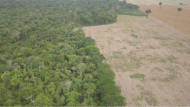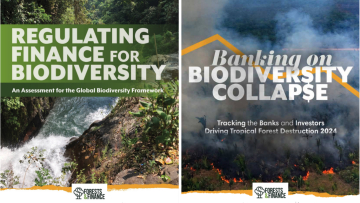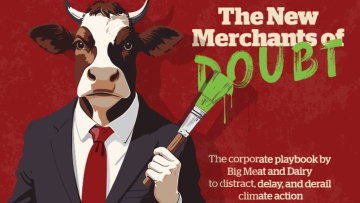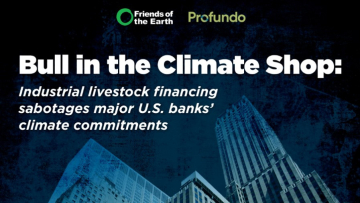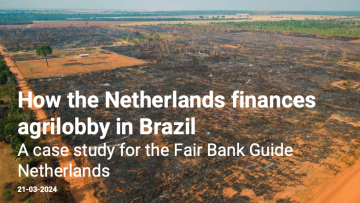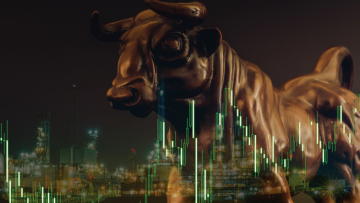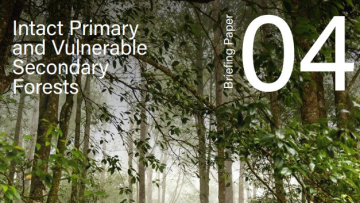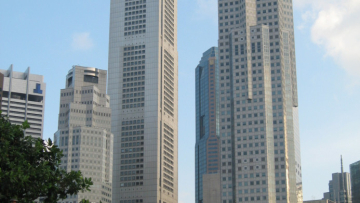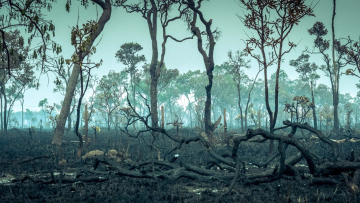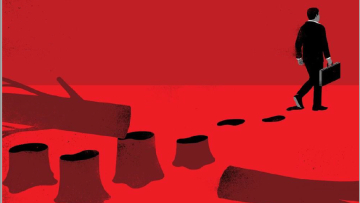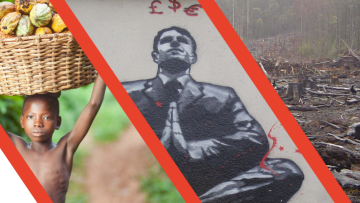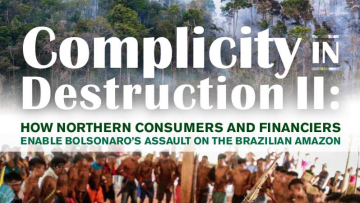
Company – On record
This profile is no longer actively maintained, with the information now possibly out of dateBankTrack
nature@banktrack.org
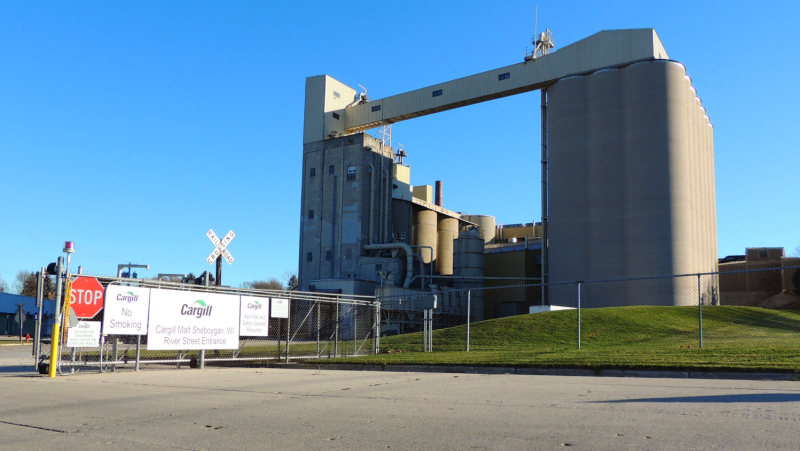
Company – On record
This profile is no longer actively maintained, with the information now possibly out of dateBankTrack
nature@banktrack.org
Why this profile?
Cargill is one of the largest companies in the world and is connected to environmental destruction and repeated instances of human rights abuses. The company drives deforestation in some of the most fragile forest ecosystems in Brazil and encroaches on the lands of Indigenous peoples who depend on those forests. Cargill is also one of the top ten polluters in the US food industry and contributes to accelerating climate change through its supply chain emissions.
What must happen
Banks should not renew or take on new financing agreements with Cargill until and unless it fully eliminates deforestation and human rights abuses from its entire supply chain, and publicly reports its full supply chain emissions and include them in its reduction targets. Where engagement with the company does not bring about these results in a timely manner, financial institutions must divest or suspend any existing financial agreements.
| Sectors | Agriculture for Palm Oil , Agriculture for Food Crops |
| Headquarters |
|
| Ownership |
Cargill is a privately owned company. The descendants of the founder (from the Cargill and MacMillan families) own over 85% of the company. |
| Subsidiaries |
|
| Website | http://www.cargill.com |
Cargill is a multinational company which provides food, agriculture, financial and industrial products. It is the second-largest meat processor worldwide. It has 155,000 employees and operates in 70 countries. It was founded in 1865. Cargill has more than 60 subsidiaries. A list can be found here.
Impact on human rights and communities
In 2005, the International Labor Rights Fund filed suit against Cargill, Nestlé, and Archer Daniels Midland in federal court on behalf of children who were trafficked from Mali into Côte d'Ivoire and forced to work 12 to 14 hours a day with no pay, little food and sleep, and frequent physical abuse, on cocoa bean plantations. In 2016, the Supreme Court ruled that the lawsuit would not be withdrawn. However, in 2021 a final Supreme Court ruling reversed the decision and the lawsuit was thrown out.
Cargill is a major buyer of cotton in Uzbekistan, despite the industry prevalence of uncompensated workers and possible human rights abuses. Two company representatives admitted that the company is aware of the possible use of child labour in the production of its crops, a concern which they raised publicly back in 2005, but no action has been taken regarding labour violations existent in their Uzbek operations.
Moreover, the NGO Mighty Earth visited the Cargill headquarters to urge the company to stop doing business in Russia due to its invasion of Ukraine. The volunteers carried thousands of petition signatures and a letter from Ukraine civil society groups, but Cargill has yet to pull out of Russia.
Impact on climate
According to a study published by Global Justice Now in 2015, Cargill's undeclared climate emissions are comparable to the combined national emissions of Denmark, Bulgaria and Sweden. The company declared its annual emissions in 2015 as 15m tonnes. However, if the analysis included the emissions caused by growing food crops and their use of livestock then the result would be starkly different: Cargill’s climate impact would reach an estimated climate impact of 145m tonnes.
Adding to this, GRAIN and the Institute for Agriculture and Trade Policy (IATP) have found that Cargill still fails to report its supply chain emissions or to include them in its reduction targets. Cargill’s failure to include these emissions from its reduction targets clashes with the company’s claim that they “account for roughly 90 % of emissions across [its] value chain”.
Impact on nature and environment
Soy: In 2003, Cargill completed a port for processing soya in Santarém in the Amazon region of Brazil, dramatically increasing soya production in the area and speeding up deforestation of local rain forests. Then, in 2006 Greenpeace urged food retailers to stop buying meat raised on Amazon soy. Major food retailers including McDonald's, along with UK retailers Asda, Waitrose, and Marks & Spencer joined the Greenpeace campaign. These retailers have, in turn, put pressure on Cargill, Archer Daniels Midland, Bunge, André Maggi Group, and Dreyfus to prove their soya was not grown on recently deforested land in the Amazon. In July 2006, Cargill joined other soy businesses in Brazil in a two-year moratorium on the purchase of soybeans from newly deforested land.
The Santarem port was shut down in 2007 by the Brazilian Environmental Agency due to Cargill’s failure in providing an Environmental Impact Assessment (EIA); in 2010 Cargill submitted an EIA and the port was reopened in 2012. By 2015, six new ports were added. By 2019, Cargill admitted that the Brazilian soy industry would be unable to meet the target of ‘ending deforestation’ in Brazil by 2020 that soy companies had set in the 2000s.
Palm oil: In July 2014 Cargill announced a “No Deforestation, No Peat, No Exploitation” palm oil policy for its own operations and its third-party suppliers. It has promised to announce a specific implementation plan, and it has partnered with TFT to provide traceability to its customers. This policy was a major step forward for Cargill, and was praised by outside experts and NGOs. However, the policy does contain some gaps: it does not address the use of hazardous pesticides, such as those banned by the Rotterdam Convention, and it does not make any commitments to address mill effluent, a globally significant source of methane pollution. Most importantly, the policy currently only applies to palm oil, leaving out Cargill’s significant global commodity operations in cattle, soy, and sugar, among others. Nonetheless, the policy marks a major step forward for Cargill as a responsible palm oil provider. On September 23 2014, Cargill announced that it was extending its deforestation-free policy across all commodities.
However, in 2016, the Malaysian-based palm oil conglomerate IOI was caught illegally laying waste on protected tropical rainforests and exploiting local communities and workers. As a result, the Roundtable on Sustainable Palm Oil (RSPO) suspended IOI’s sustainability certification and 26 companies cancelled their contracts with IOI, including Unilever, Kellogg Company, Mars, Colgate-Palmolive, Johnson & Johnson, and Nestlé. Only after months and growing public pressure, did Cargill sever its ties with IOI. Cargill has since resumed sourcing from IOI.
Similarly, in 2015, the Guatemalan palm oil company Reforestadora de Palmas del Petén (REPSA) was identified as likely responsible for the contamination of one of Guatemala’s largest rivers, resulting in a fish kill of more than one hundred and fifty tons of fish, thus devastating over a hundred communities that depend on the river. Following a lawsuit brought by a local community group, a Guatemalan court found REPSA guilty of “ecocide” and ordered them to suspend operations. Cargill suspended their contract only after years of pressure from American and Latin American environmental and human rights organisations, and the arrests for bribery and tax fraud of three of REPSA’s top executives.
Deforestation and biodiversity impacts: In Ghana and the Ivory Coast, Cargill has been accused of buying cocoa beans grown through the illegal clearing of protected forests and national parks. According to a series of Unearthed reports, Cargill has also violated various US environmental laws in recent years. Noxious waste from hog farms and fertiliser plants has been spilled into creeks and streams, including in Missouri and Illinois, and bays from San Francisco to Tampa, killing countless fish and spoiling wildlife refuges, wetlands and reserves. Moreover, the multinational has been repeatedly linked to farms engaging in deforestation. In 2020, Unearthed and TBIJ revealed 800 sq km of deforestation and 12,000 fires since 2015 on land used by Cargill soya suppliers in the Cerrado. Lastly, during COP26, trade groups whose members include Cargill, Bunge, and ADM pushed the EU to soften its anti-deforestation plans just days after the same companies unveiled major climate pledges.

